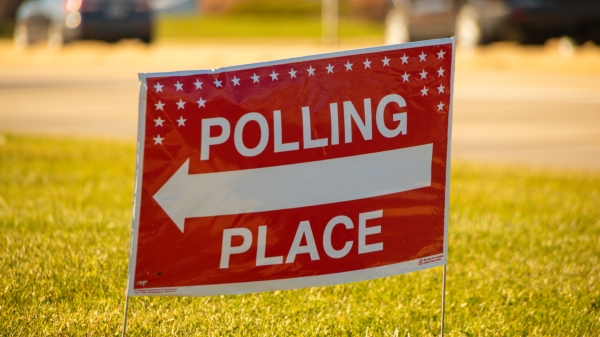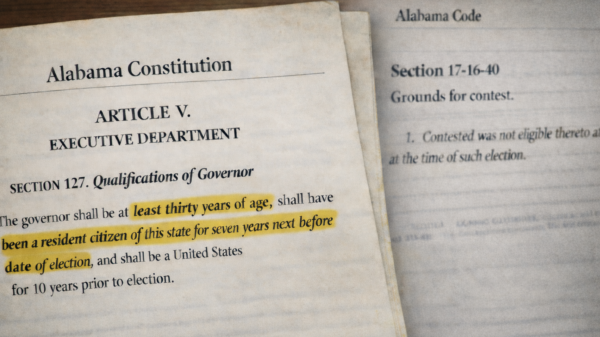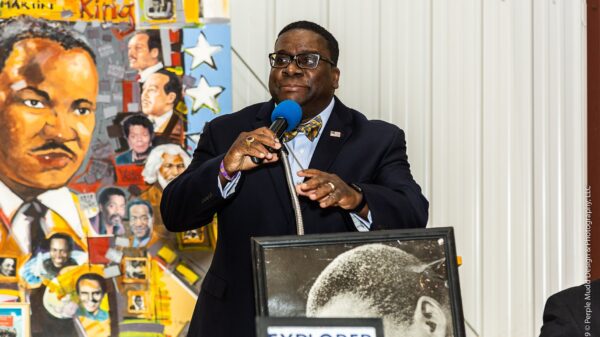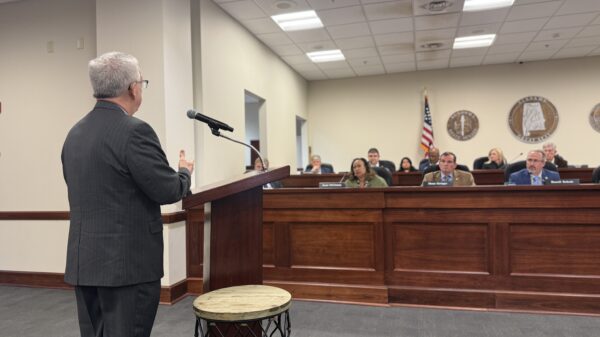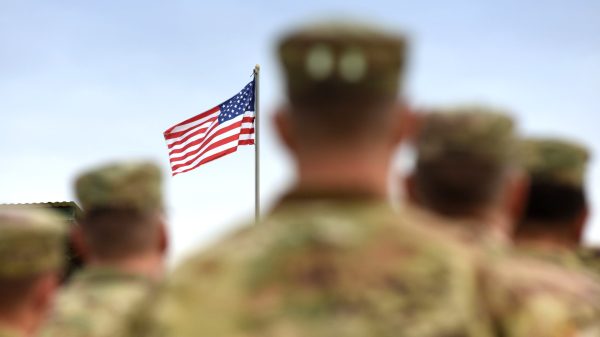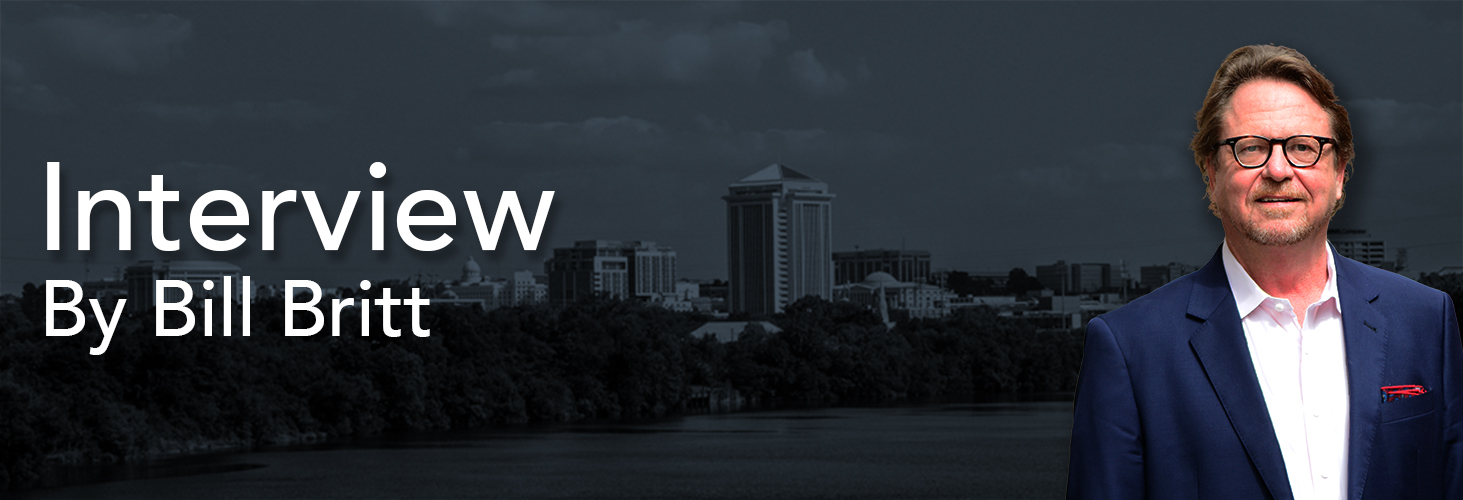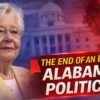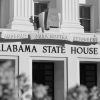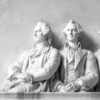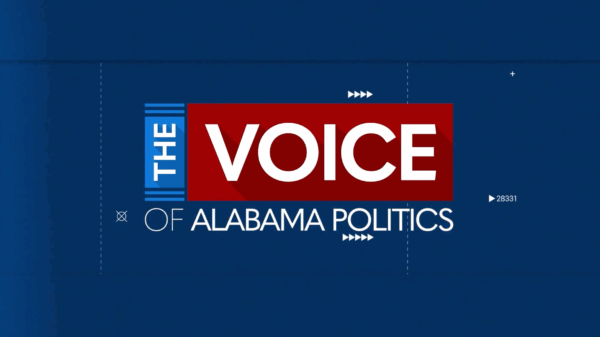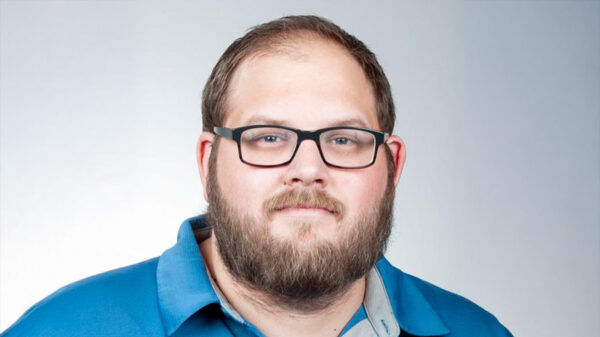By Bill Britt
Alabama Political Reporter
Recently we had the opportunity to chat with freshman Representative Ed Henry from Decatur. Henry is a man of strong conviction and muscular determination. He is one to watch in the upcoming session.
APR: It may seem like a simple question but many times it go to the core of one’s beliefs, what motivated you to run for office?
HENRY: November of 2007, I was driving home from work and I heard a fellow on the radio talking about the housing problem and all of the issues that were coming up with people not being able to pay for the stuff that they had bought and he was asking, is it the government’s responsibility to essentially bail them out.
The more the fellow talked the more I agreed with him. So, I looked up this man I found out who it was…it was Mike Huckabee. This was prior to the his showing in the Iowa caucus. He was just getting started in Iowa. I started trying to find anybody in Alabama that was working with his campaign and there wasn’t anybody. So, I went online and I found that there was a “meet-up” group on Google only one guy was in and he said that he was for Mike Huckabee. I joined that meet-up group and he and I and two other people who had signed up. We were the first four people that actually met for Mike Huckabee in the state of Alabama.
By the time he came to Alabama, our meet-up group had grown to several hundred in our town which spawned out to Madison, Huntsville and Marshall County. We were all going to these meet-up groups and helping them get involved. Burning DVDs with speeches Mike had given. I had a multi-DVD burner and we were just pumping stuff out so when he came I had the privilege of hanging out with him for several hours while he was in Huntsville just helping him.
I was very impressed with his demeanor and his character. It showed through that he was a real person. He wasn’t full of himself, he wasn’t phony. We knew it was a longshot for him to become a presidential contender but we worked hard. I was complaining to God about why can’t we get regular, everyday, ordinary people in government. God hit me really hard and said, “Because they don’t make themselves available. If you really care then make yourself available.”
I backed up real quick because that did not fit into mine and my wife’s plan.
APR: That’s how it works isn’t it, God tells us something and we go, wait, wait, ah, you must mean someone else, I have other plans.
 HENRY: Yes, you are right. That night I came home and I told my wife what I thought God was leaning on me to do and she had the same reaction that I had, “No. Are you kidding? Let’s just help somebody else, do it.” For a good three months we began to pray. That was in January of 2008 when I met Mike. For three months we prayed, “Father, if this is not your will then close the doors. Take it away. Don’t make it available.”
HENRY: Yes, you are right. That night I came home and I told my wife what I thought God was leaning on me to do and she had the same reaction that I had, “No. Are you kidding? Let’s just help somebody else, do it.” For a good three months we began to pray. That was in January of 2008 when I met Mike. For three months we prayed, “Father, if this is not your will then close the doors. Take it away. Don’t make it available.”
So I went to my employer and I asked them what they thought and they were all for it. I went to various people trying to get some doors to close and they just kept flying wide open. Here I am an absolute nobody, just a worker bee in society in a primary that was an open race. The incumbent decided not to run after I announced so I had a Republican primary against a two-term mayor in our town. He had an endless supply of money. We’re just regular people, there is nothing special about us and I beat him two to one in every box in the district. So I mean it was crazy, it was insane. So that is how we got here.
APR: So in your first year, you go down to Montgomery, what were some of your thoughts when you first got there.
HENRY: I was very optimistic and encouraged by the fact that there were so many representatives. One of my prayers during the campaign was, “God, stir the hearts and the minds of people around this state. Don’t send me down there by myself. Give me some people to work with and it came true. There is a good new group of us down there. I would say, out of the 24 Republican freshman representatives I feel really strong connections with more than 20 of them. About 20 of us are pretty close and work off of each other. There is no “this is mine” or “this is me,” it is all for the cause not for the glory.
APR: You had to make some tough choices because the Republicans came in there and had to make some decisions that had not been made for a hundred and some odd years, because the Legislature had just gone adrift. It was basically controlled by the AEA and the gamblers and special interests. Then all of a sudden here is a whole new crop of freshmen that don’t really owe their allegiance to anybody and a whole new leadership that has just been waiting in the wings for years to get their new ideas out there. So, you guys had to make some tough decisions.
Could you tell us a little bit about your decision-making process and some of the things that came up that you had to decide on, things that folks back in your district maybe didn’t understand that had to be explained.
HENRY: Any of the big decisions that we had, none of them were hard. They were all crystal-clear to me and I felt very strong in the fact that all of the votes that I made whether in regard to tenure, fiscal responsibility, not raising taxes, economic incentives, illegal immigration, all of those I campaigned heavily on. If anybody in my district did not know that I was going to vote that way then they just weren’t listening.
APR: So you were already prepared to do what you had to do?
HENRY: Right. I fully intended to do what we did. I was a little disappointed that we weren’t quite as strong as I would have liked for us to have been. But, the ethics reform, those were the easiest votes I have ever made in my life. We were fighting not only the Democratic Party but there were quite a few within our own party that we were fighting the other way.
APR: Well, how do you see that lining up from time to time? There is always different interests among people, sometimes rural against urban, sometimes the old school against the new freshmen. I am not asking you to give me anything specific unless you want to. Most people don’t understand the ins-and-outs of government at all much less the personalities that come into play.
HENRY: Right. And the personalities are huge. You build relationships down there. That is how you get things passed and things done through relationships. If I had to say an obstacle that we will have to overcome this year is going to be between your representatives that only have K-12 education and representatives that are protecting higher education. There is probably going to be a little bit of a riff there, I hope not too much. I can kind of see that one starting, there are already some rumblings out there. I can see that and that may not be along party lines. It may be purely a K-12 versus higher education. I’ll be interested to see how it all begins to unfold when we get there.
APR: One of the things that I am interested in is your thought process as you go into this next session. You’ve got a year under your belt, you’ve got some things that are on your mind, some things you have learned. Can you share with me what your agenda is going into this session?
HENRY: I have a few small bills that will come through. Again, I don’t picture myself so much about Ed Henry as it is about good laws being passed or bad laws being repealed. I had a battle early on in my life with myself, I told you that the other day. I feel like I can do so much more if I am not the person in the lead—that I find somebody that has a good bill and I help them push it.
APR: Are there things that you are thinking about right now that are bills like that?
HENRY: I’ll tell you, something I want as much as anything and I don’t see our leadership pushing it is “Loser Pay” tort reform. I feel like the way the legal system works right now is almost extortion once somebody files suit on you. The attorneys kick in and you are going to pay money win or lose. I have a problem with that and I don’t have the answer to exactly what the answer should be because you don’t want to cripple people from not being able to sue. But at the same time, these lawsuits that are filed that are around $20,000, you might as well settle for $15,000 because it is going to cost you $20,000 to win and if you settle for $15,000 then you have saved $5,000. In actuality you are out $15,000 over something that should have never been brought to suit.
APR: The “Loser Pay” reform is a great thing but it is a tough one to implement, I understand, but there are ways of doing it. The other thing is putting some caps on medical lawsuits, putting some barriers to frivolous lawsuits. These are all things I think the people of Alabama want to see.
HENRY: I think they do too. I am definitely for that. I also want to see the legislature pass a law that opens up legal notice advertising up to competition. The newspapers have had a monopoly on printing legal notices for too long. This is something that needs to be available on the web free of charge to the public. That’s why I liked your article. [Newspapers a state-sanctioned monopoly]. Everything you printed in there I have been complaining about for a year now [newspapers and legal advertising].
APR: Let’s talk about your points on that. You’ve got some good points talking about how the cities, counties and state are spending all this money. If you want to talk about that…
HENRY: Yeah, I do. My argument has been that we shouldn’t be subsidizing private industry with requirements on our own government to publish these notices, but then in turn here we, as the government, require cities and counties to file these notices in private papers. So we pay the paper and then they the papers turn around and charge the public to see those publications. We are paying them and the public is paying them so truly how open to the public is that? Whereas if we put it on the Internet anybody can walk into a public library get on the Internet see the public notices absolutely free.
APR: One of the things that we experienced was, let’s say, when they are printing the delinquent tax list, the county is required, by law, to print the delinquent tax list, now the state will only pay ‘x’ amount of money per name on that list and that is all that they will pay so if the newspaper charges more then the county is on the hook for that extra money.
HENRY: Wow. I didn’t know how it worked. I didn’t know it worked like that.
APR: That is how it works. That’s part of the craziness to it because the state is only going to pay so much per name and then they have to make up the difference with more taxpayer money.
HENRY: That is your typical unfunded mandate. We mandate that you do this but we are not going to pay for all of it.
APR: That is exactly what they do when those notices are put in the paper.
HENRY: One other thing that we are going to have to start looking at in the state is how we handle Medicaid. There are some ideas out there with having Medicaid centers around the state that basically manage that care internally. I know that there are some entities outside our state that are trying to convince the state government to do a third-party managed care. I am not a fan of that. I think it just takes money out of the pot and gives it to somebody else and all they are going to do is provide a service.
APR: Are you going to set up Medicaid centers where certain facilities would be able to take the Medicaid patients?
HENRY: No. I think what is going to happen is we will probably have umbrellas where you will have an entity in each section of the state that manages the Medicaid dollars. At least they aren’t going to deny service. They are a healthcare provider and there is some liability that goes along with that denial of service. My problem with third-party is that all they are going to do is tell a physician that, “No. We are not going to pay for exam X. You can do it or not. We are not telling you not to do it. We are just telling you we are not going to pay for it.” So, then if that physician doesn’t do the exam and the patient has a complication the physician is the one that is on the hook for the lawsuit, not the third party. So this way this brings the liability back to the decision-maker.
APR: And always when it is closer to the person that is needing the response, needing the help you can make better decisions because you are closer to them.
HENRY: Right. That’s the idea and I hope that is the direction we are going. Whatever the way, the Affordable Healthcare (Obamacare) is going to put so many new people on our Medicaid roles that within the next two years, I don’t know that the General Fund will have enough money in it to cover Medicaid.
APR: And that is our biggest liability isn’t it?
HENRY: It is. That and prisons.
Representative speaks more in Part 2 about his thoughts on the up coming legislative session.


